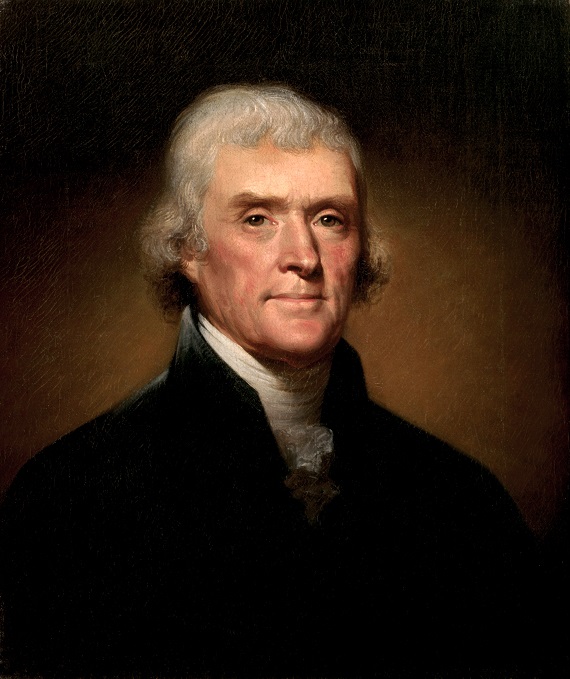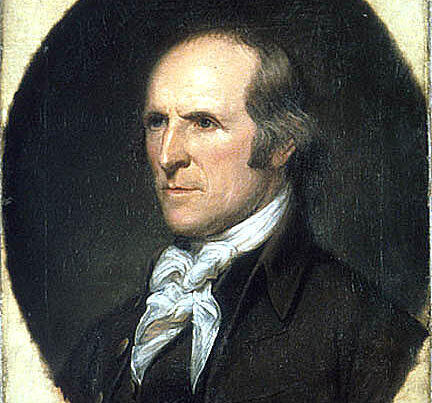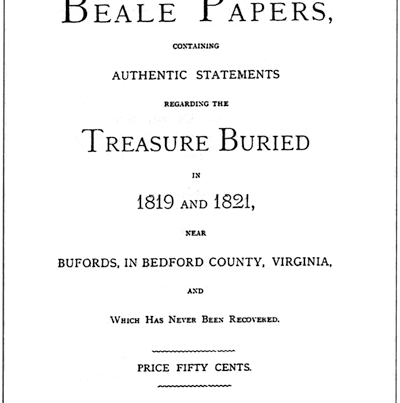
I am writing in response to the recently posted piece at the Minneapolis Star Tribune, entitled “History proves Thomas Jefferson was wrong (whew).”
The author of this article drastically overstates Madison’s role in the finalized Constitution. Madison desired a highly nationalistic government, with a national legislature that had general legislative authority, two houses of Congress both of which were apportioned by population, a supreme judiciary that had the right to rule on basically every case it desired, a president that was elected by Congress, and a federal veto of state law. Truthfully, Madison did not like the final Constitution because his nationalistic aims lost out in Philadelphia, but he did respect the Constitution as ratified over his own personal proclivities. He was hardly the “inventor of the Constitution,” and even maintained in old age that the Constitution was the product of “many minds and many hands.” Madison is often called the “Father of the Constitution,” but this title is unwarranted considering that most substantive aspects of the plan he desired (The Virginia Plan) were replaced by more agreeable alternatives at the Philadelphia Convention.
The writer describes an intellectual discussion between Jefferson and Madison concerning a constitutional sunset as if Jefferson adopted the rule as his personal penchant. Madison responded to the letter by proclaiming that prior generations sometimes pass doubt tangible benefits to subsequent ones. Additionally, he noted that delineations between generations were impossible considering the fact that people are born and die every day. After reading Madison’s response, Jefferson never brought up the idea again, nor did he make it public policy during his public life or presidency – which, by the way, included a period of 19 years after the Constitution was written.
Jefferson undeniably believed that the earth belonged to the living, and thus the people of any age had the right to self-government that they defined through the consent of the governed. Therefore, a free people had a right to dissolve their own government. However, that action would have to be taken deliberately. Into his old age, Jefferson maintained that it would take an intentional act of the people to dissolve a Constitution rather than setting an arbitrary sunset timeline:
“We have not yet so far perfected our constitutions as to venture to make them unchangeable. But still, in their present state, we consider them not otherwise changeable than by the authority of the people on a special election of representatives for that purpose expressly.”
Until then, Jefferson stated, a Constitution is “lex legum” – a Latin term meaning “law of laws.”
The writer also portrays Jefferson as one who opposed the United States Constitution. In actuality, he generally supported it. His only reservations, which he mentioned to Madison in late 1787, concerned the lack of a bill of rights and a lack of term limits for the executive. Still, Jefferson exhibited more support toward the framework than disdain.
The article contends that opposing the national bank was a “dangerous constitutional idea,” but that was an incredibly popular political position at that time, and has been a mainstream political view throughout most of United States history. Jefferson was historically correct concerning the national bank’s unconstitutionality, and unpopularity the Hamiltonian economic plan helped thrust the Federalists out of power in 1800, never to return again. Public disapproval toward Hamilton’s aims helped give rise to the first minority political party in the United States, Jefferson’s Republican Party.
Alexander Hamilton, who used the Necessary and Proper Clause to defend the legitimacy of the national bank, admitted in The Federalist #33 that the same clause provided no unlisted, unspecified, implied powers to the federal government:
“They are only declaratory of a truth which would have resulted by necessary and unavoidable implication from the very act of constituting a federal government, and vesting it with certain specified powers. This is so clear a proposition, that moderation itself can scarcely listen to the railings which have been so copiously vented against this part of the plan.”
Jefferson cited the Tenth Amendment as the “foundation” of the Constitution in opposing the bank. This was done despite the author’s claim that Jefferson wanted the document to sunset anyway. This, of course, would have made his entire argument irrelevant and unintelligible.
The writer also incorrectly postulates that Jefferson and Madison were somehow on opposite ends of nullification/interposition when they were not. The author cites different wording in the Virginia Resolutions of 1798 compared to their Kentucky counterparts as evidence of this.
In reality, the only reason the referenced wording in the resolutions differed was because it was considered redundant. As I noted using primary sources in my book, the chief sponsor of the bill, John Taylor of Carolina, noted this in explicit terms. When the bill was under debate, Taylor agreed to amend the language based on the understanding that it was already widely understood that the Alien and Sedition Acts would be “null, void, and of no force or effect” in the state.
From Compact of the Republic: The League of States and the Constitution, I wrote:
“Words from the other members of the Virginia House of Delegates corroborate this account. Delegate George Taylor makes note that the Virginia Resolutions, in their passage, would create an environment of open resistance. He reaffirmed this, saying that the resolutions “made it the duty of the people to defend themselves against them.” A duty, of course, is an obligation. He stated definitively that the consequence of pursuing the resolutions would be “insurrection.” John Mercer, another member of the House of Delegates, described the resolutions as acts which would maintain “entire independence” for Virginia. When referencing Mercer, the notes reflect that the “right of the state government to interfere in the manner proposed by the resolutions was clear to his mind.” Delegate Charles Magill noted that “the resolutions declare those laws null and void.” General “Light-Horse Harry” Lee stood and made reference to the fact that the resolutions “recommended resistance” and “declared the laws null and void.” Lee also opposed the resolutions, but understood this to be the purpose. He also contended that the resolutions advised the necessitation of an insurrection, which is a condition that goes beyond the tenets of nullification, but proves this was not a controversy over whether or not to simply codify the state’s disapproval to the Alien and Sedition Acts. Lee later complained that by passage of the resolutions, there would be civil disobedience.”
If there were any doubts remaining, Madison reiterated the same position in the Virginia Report of 1800, which made his thoughts on the matter clear. He opined that each state, as a member of the constitutional compact, had the individual power to determine when creature of the states (the federal government) had usurped authority and undermined the Constitution. He did nothing to “restrict the states’ right to declaring that a law was unconstitutional,” quite the opposite. Take it from Madison rather than this author:
“The states, then, being the parties to the constitutional compact, and in their sovereign capacity, it follows of necessity, that there can be no tribunal above their authority, to decide in the last resort, whether the compact made by them be violated; and, consequently, that, as the parties to it, they must themselves decide, in the last resort, such questions as may be of sufficient magnitude to require their interposition.”
Overall, this piece was a perplexing combination of gross misrepresentations, fallacious conclusions, and faulty interpretations of actual events. Fortunately for history, Jefferson was right and the writer of this article is wrong.






